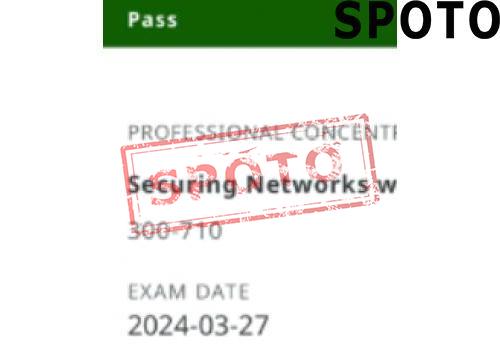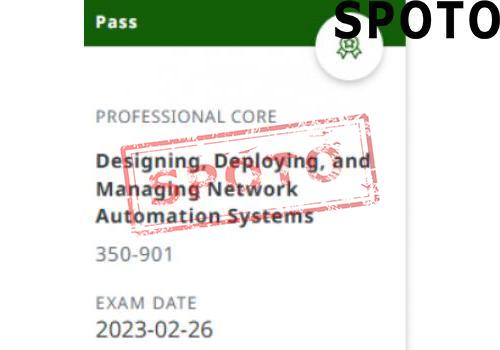
Table of Contents
Do you really understand how to be a Network engineer?
Ever wonder who keeps everything connected behind the scenes in an organization?
That's where network engineers come in. Behind every IT infrastructure is a network engineer. Network engineers are experts who can apply a range of technologies to connect, secure, and automate complex networks, and it's a critical role in companies from every industry.
If you enjoy problem-solving, love working with systems, and want a career that's always evolving with technology, network engineering might be the perfect fit for you.This article offers a professional and authoritative look at what a Network engineerr is, how to pursue this career path, and practical steps you can take to get there.
1. What Is a Network engineer ?
Network engineers are responsible for the design, deployment, and ongoing management of the communication and data infrastructure that organizations rely on. This includes internal networks such as intranets and phone systems, as well as external connectivity through extranets. In addition to building and configuring these systems, network engineers routinely monitor performance, conduct preventative maintenance, troubleshoot technical issues, and implement corrective measures to ensure optimal network functionality and reliability.
2. Network engineer skills and qualifications
-
Strong communication skills
-
Analytical skills
-
Time management
-
Problem-solving
-
Project management
3. How To Become a Network engineer ?
Based on actual market demand and real workplace needs, the following are the necessary conditions to become a network engineer
(1)Fulfill Educational Requirements
To begin your journey toward a career in network engineering, it is advisable to earn a bachelor's degree in a relevant discipline such as computer science, information technology, or systems engineering. This academic foundation equips you with the theoretical knowledge and problem-solving skills essential for success in the field.
(2)Earn Industry-Recognized Certifications
Professional certifications are a key step in demonstrating your technical capabilities. Vendor-specific credentials are particularly valuable in this space. Notable examples include:
Cisco Certified Network Professional (CCNP) – Service Provider
Validates your ability to configure, test, and enhance modern service provider IP infrastructures.
Cisco Certified Internetwork Expert (CCIE) – Service Provider
Confirms advanced expertise in designing and troubleshooting complex service provider network environments.
(3)Specialize in Vendor Technologies
After securing foundational certifications, you may choose to specialize in the products and technologies of a specific vendor. Reviewing the hardware and software ecosystem of leading providers can help you determine the best fit for your interests and strengths.
(4)Launch Your Job Search
Once your education and certifications are in place, you can actively pursue network engineering roles. Tailor your resume to highlight relevant credentials and certifications to enhance your visibility with potential employers. Emphasize both technical proficiency and any hands-on experience with enterprise networking tools.
4. The Details
Salary of Network engineer
In Shinjuku City, Tokyo, the salary for a network engineer generally ranges from approximately ¥6,000,000 to ¥17,000,000 per year, according to Morgan McKinley. This range can be categorized into low, median, and high levels based on experience and skills. In addition to base salaries, engineers may receive performance-based bonuses and participate in profit-sharing schemes offered by some employers. While network engineers generally maintain a standard 40-hour workweek, they are often required to be available during evenings, weekends, or outside regular business hours to address urgent technical issues and system outages.
Network engineer Job Outlook
Employment projections show that network engineers are in demand, and projections indicate the profession -- and other closely related professions -- will grow by about 5% in the next decade. Network engineers continue to be in demand globally. In the U.S., the Bureau of Labor Statistics projects 16,400 job openings per year for network and systems administrators through 2033, mostly to replace retiring workers. Meanwhile, markets like the UK and Australia are seeing growing demand due to digital transformation and cloud adoption, with average salaries reaching AUD 100,000/year in Australia. Skilled engineers with up-to-date certifications remain highly sought after.
Job Titles Related to Network engineer
- Network designer
- Network manager
- Computer Network Architects
- Systems engineering
- Network administrator
- Network Analyst
- Network Specialist
5. Certify with us to start down your ideal career path
In today's fast-evolving IT landscape, industry-recognized certifications play a crucial role in validating technical expertise and enhancing career prospects. Among these, the Cisco Certified Network Professional (CCNP) Service Provider stands out as a global benchmark for advanced networking professionals.
Earning the CCNP Service Provider certification not only demonstrates your ability to design, implement, and optimize sophisticated service provider IP networks—it also signals to employers that you have the specialized knowledge needed to support large-scale, mission-critical infrastructure. This credential is widely respected across industries and serves as a key differentiator in competitive job markets.
The training and certification for CCNP Service Provider showcase your knowledge of core architecture, services, networking, automation, quality of service, security, and network assurance. A CCNP Service Provider certification proves you can configure, verify, and optimize even the most advanced service provider IP network infrastructures.
What You'll Get with CCNP Collaboration Training:
- Structured Learning Paths
Follow carefully designed roadmaps built by Cisco experts to guide you through every concept and skill required for exam success.
- Knowledge Assessments
Take pre- and post-training assessments to evaluate your current knowledge, identify gaps, and measure progress throughout your learning experience.
- Hands-On Practice Labs
Gain practical experience using actual Cisco technologies. These labs simulate real-world scenarios, ensuring you're job-ready from day one.
- Practice Exams
Access realistic mock exams to test your readiness and improve your confidence before sitting for the official certification.










